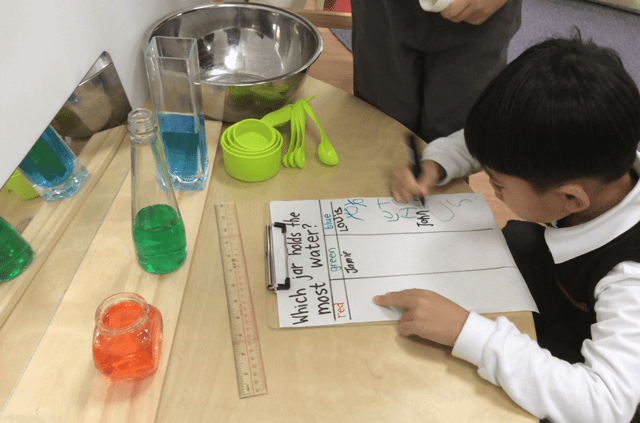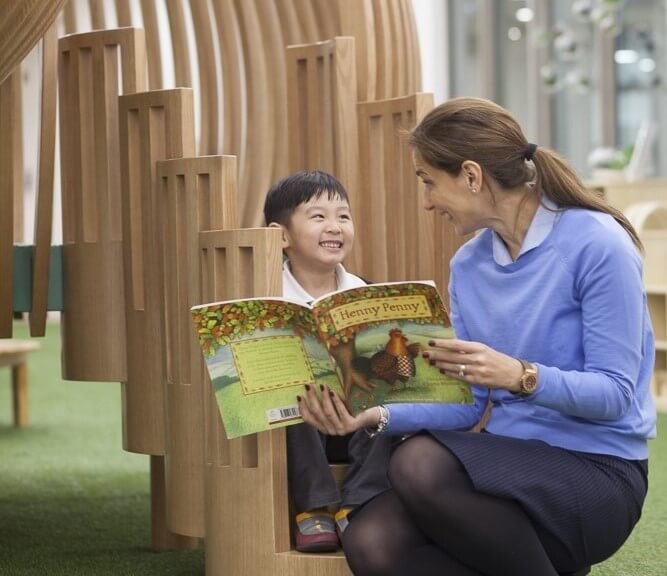
Bipasha Minocha
Bipasha is the Group Chief Marketing Officer of EtonHouse. She is a mother of a teenager. She holds a BA (Hons) Econ, MBA (Finance & Marketing) and Dip. Pre-School Teaching. Bipasha has been with EtonHouse since 2007 and has more than 20 years of experience in content, marketing and communications.
The literacy goals and outcomes for toddlers and preschoolers have changed dramatically over the years. The emphasis is definitely on pushing the literacy outcomes associated with formal schooling down to the early years. To hothouse children into becoming ‘literate’, we have seen over the years the emergence of flash cards for babies, spelling lists for preschoolers and the expectation to read and write earlier than developmentally appropriate. There is plenty of evidence to support that when children are pushed into reading, often times you have a child who struggles with a lack of interest, stress and rebellion and is ‘put off’ by reading (Curtis & Carter, 2003).
We have heard this time and again that we should nurture in children a genuine love for reading where they think of books as their ‘friends’. How can we expect them to 'befriend’ books if the experience is forced or unpleasant, where children are told to copy letters and memorise word lists and jump from one book to another in reading schemes? Instead, if we create happy and memorable experiences around books and encourage children to be a part of the world of imagination and wonder that books can take them to, we will be laying the foundation for learning and a positive attitude towards reading and being lifelong readers.
Literacy skills in the early years develop as a culmination of knowledge and understanding of oral language, comprehension of oral speech and written text, concepts about print, phonological awareness, letter-sound correspondence, sight recognition of familiar words, print motivation and an understanding of the alphabetic principle.
The development of these skills does not happen in isolation. It is a process that includes a multitude of intentional experiences that create a positive association towards literacy and a willingness to face the challenges of developing literacy skills. This could involve adult role-modeling in the form of reading specific forms of text, for example, newspaper to consume news, a grocery list to remind us of things to buy, a recipe that translates into a delicious meal. Being exposed to different forms of print that meet a specific purpose helps children appreciate the relevance of print in their daily lives. Exposure to environment print in the form of labels, road signs, packaging, brand logos etc. helps children understand that these ‘shapes’ signify letters and translate to something meaningful. They then begin to understand the purpose of reading and writing in communicating with others. Parents play an important role in their children's learning by providing them with such experiences in their daily life.
 Photo: EtonHouse International Pre-School, Hong Kong
Photo: EtonHouse International Pre-School, Hong Kong
During inquiry projects and play-based provocations, children engage in a range of literacy experiences such as recording data, writing a shopping list, creating a food menu, interpreting data through symbols and graphs, reading maps, writing journals etc. These experiences strengthen their understanding of the purpose of print, the different forms of print and challenge them to further develop their skills and knowledge of reading and writing, all in a meaningful way that reflects everyday life. Wouldn’t you agree that these experiences are a lot more powerful and fun too for the development of literacy skills, as compared to worksheets and spelling lists?
Reference
Curtis, D., & M. Carter. 2003. Designs for Living and Learning: Transforming Early Childhood Environments. St. Paul, MN: Redleaf
Learn more about our inquiry-based approach.


